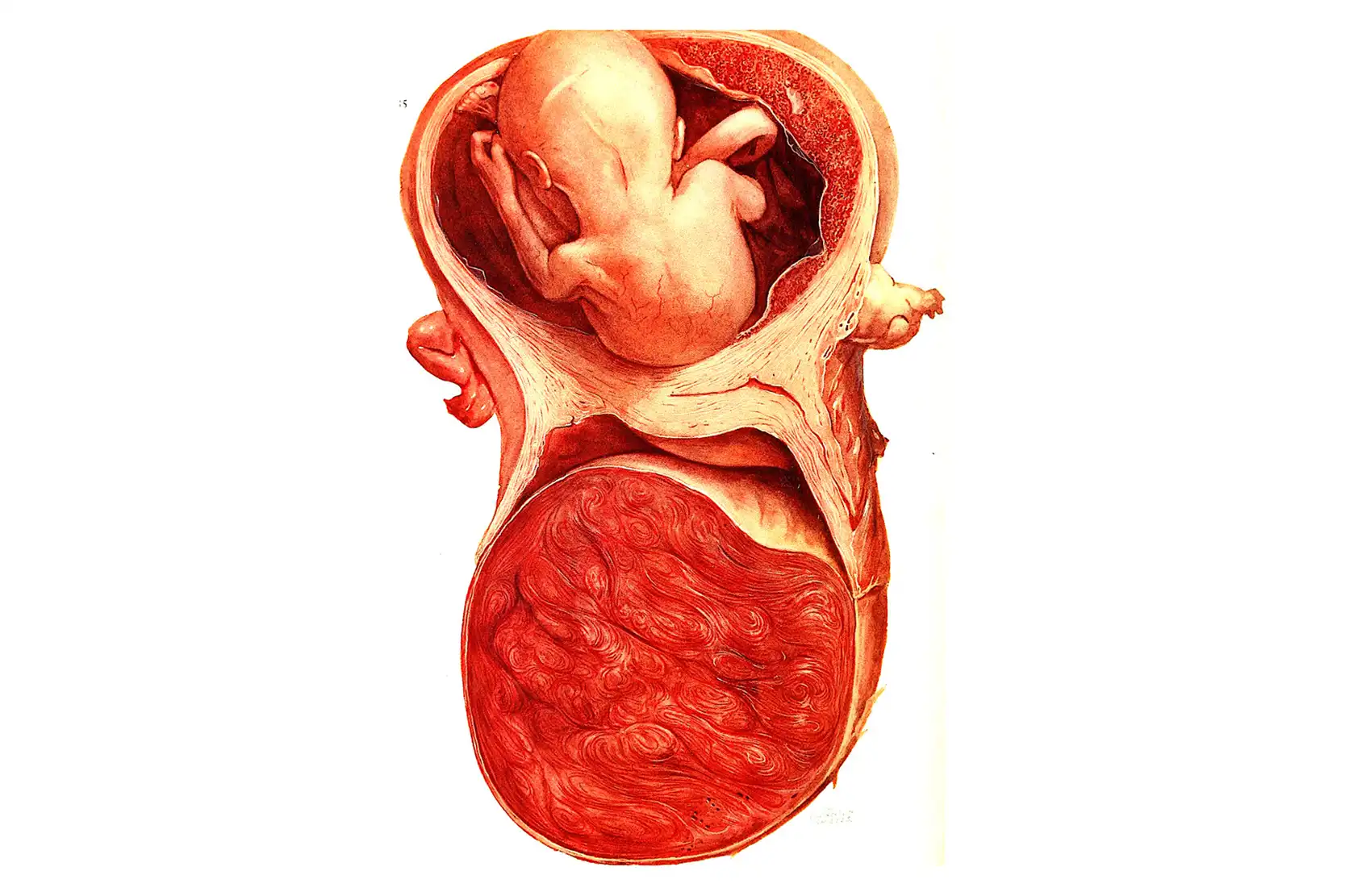
HEALTH BLOG
Difference Between Orthorexia vs Anorexia and Revealing the Two Distinct Eating Disorders
-
Rahul Priydarss
Explore the variance between Orthorexia vs Anorexia, uncovering the unique characteristics of these two eating disorders. Delve into the complexities of disordered eating habits and gain insights into their distinct impacts on mental and physical health.
Introduction to Orthorexia vs Anorexia:
Eating disorders are not just about food; they stem from a combination of genetic, psychological, and environmental factors. Orthorexia nervosa and anorexia nervosa are both characterized by an unhealthy preoccupation with food, but they manifest differently in terms of behaviors, motivations, and consequences.

Table of Contents
Orthorexia vs Anorexia:
Eating disorders are complex mental health conditions that can have serious consequences on physical and emotional well-being. Two commonly discussed eating disorders are orthorexia vs anorexia. While they share some similarities, they are distinct conditions with unique characteristics and treatment approaches.
Definition of Orthorexia:
Orthorexia nervosa, although not formally recognized as a clinical diagnosis in the Diagnostic and Statistical Manual of Mental Disorders (DSM-5), involves an obsession with healthy eating to the extent that it becomes detrimental to one’s overall well-being. Individuals with orthorexia may obsessively research, plan, and prepare their meals, often avoiding foods they deem impure or unhealthy.
Causes and Risk Factors of Orthorexia:
The exact causes of orthorexia are not well understood, but factors such as societal pressure to eat healthily, perfectionism, and anxiety disorders may contribute to its development. Additionally, exposure to social media influencers promoting extreme dietary habits can exacerbate orthorexic tendencies.
Signs and Symptoms of Orthorexia:
Signs of orthorexia include rigid dietary restrictions, extreme concern over the nutritional content of foods, feelings of guilt or shame when deviating from strict eating habits, and social isolation due to food-related behaviors.
Definition of Anorexia:
Anorexia nervosa is a serious mental illness characterized by self-imposed starvation and a distorted body image. Individuals with anorexia often have an intense fear of gaining weight, leading them to severely restrict their food intake and engage in excessive exercise.
Causes and Risk Factors of Anorexia:
The causes of anorexia are multifaceted and may include genetic predispositions, psychological factors such as low self-esteem or perfectionism, societal pressure to be thin, and traumatic life events such as childhood abuse or bullying.
Signs and Symptoms of Anorexia:
Common signs of anorexia include extreme weight loss, obsession with body weight and shape, denial of hunger, excessive exercise, and withdrawal from social activities involving food.
Differences between Orthorexia vs Anorexia:
Dive into the disparities between Orthorexia vs Anorexia, illuminating the contrasting behaviors, motivations, and consequences of these two distinct eating disorders. Understand the nuanced differences in their focus, intentions, and impact on mental and physical health.
1- The focus of Concern: Orthorexia- revolves around an extreme fixation on consuming only foods perceived as healthy or “pure,” often involving strict adherence to specific dietary guidelines. This fixation may lead individuals to prioritize the quality and purity of their food over other aspects of their lives.
Anorexia- on the other hand, centers on a deep-seated fear of gaining weight and a relentless pursuit of thinness. Individuals with anorexia typically engage in severe calorie restriction and may exhibit behaviors such as excessive exercise or purging to maintain a low body weight.
2- Intentions: Orthorexia- primary intention is to achieve optimal health and well-being through meticulous food choices. Individuals with orthorexia may believe that consuming only “clean” or “healthy” foods will lead to better physical and mental health.
Anorexia- primary intention is to achieve extreme weight loss or maintain a significantly low body weight. The focus is primarily on calorie restriction and weight control rather than on the nutritional quality of food.
3- Primary Goal: Orthorexia- main goal is to attain health and purity through dietary choices. Individuals may believe that consuming specific foods or avoiding certain ingredients will lead to improved overall health and vitality.
Anorexia- primary goal is to achieve and maintain a low body weight, often at the expense of physical and psychological well-being. Weight loss is pursued relentlessly, regardless of the potential health consequences.
4- View on Food: Orthorexia- views food as a means to achieve health and purity, with an emphasis on consuming “clean” or “wholesome” foods. Individuals may avoid foods they perceive as unhealthy or impure, leading to a restricted diet.
Anorexia- often views food as the enemy, associating it with weight gain and loss of control. Individuals with anorexia may fear certain foods or food groups and strive to limit their intake to maintain a low body weight.
5- Control Overeating: Orthorexia- involves exerting control over the types and quality of foods consumed, with a focus on selecting only those deemed healthy or pure. This control is driven by a desire to achieve optimal health through dietary choices.
Anorexia- involves exerting control over the quantity of food consumed, often through strict calorie restriction and food avoidance. Control is centered around achieving and maintaining a low body weight.
6- Body Image: Orthorexia- is primarily concerned with achieving optimal health and may not be directly related to body image or weight. Individuals may pursue strict dietary patterns in the belief that it will lead to improved physical and mental well-being.
Anorexia- is characterized by a distorted body image and an intense fear of gaining weight. Individuals with anorexia may perceive themselves as overweight or “fat” despite being underweight, leading to extreme efforts to lose weight and maintain a thin physique.
7- Physical Health Risks: Orthorexia- may lead to nutritional deficiencies and imbalances due to the strict avoidance of certain food groups or ingredients. This can result in inadequate intake of essential nutrients, potentially leading to health problems such as malnutrition or weakened immune function.
Anorexia- poses significant physical health risks, including malnutrition, dehydration, electrolyte imbalances, and organ damage. Severe calorie restriction and weight loss can have serious consequences for overall health and may result in life-threatening complications if left untreated.
8- Psychological Impact: Orthorexia- may lead to feelings of anxiety, guilt, or distress when faced with foods perceived as unhealthy or impure. Individuals may experience obsessive thoughts about food quality and may struggle with social situations involving food.
Anorexia- is associated with intense psychological distress, including obsessive thoughts about food, weight, and body shape. Individuals may experience mood swings, depression, anxiety, and feelings of worthlessness or inadequacy related to their body image and eating behaviors.
9- Social Interactions: Orthorexia- may lead to social isolation or difficulty participating in social activities that involve food. Individuals may avoid gatherings or events where they cannot control the food options available or feel pressured to deviate from their strict dietary regimen.
Anorexia- often results in social withdrawal and isolation due to preoccupation with weight, food, and body image. Individuals may avoid social situations involving food or feel ashamed or embarrassed about their eating habits and appearance.
10- Treatment Focus: Orthorexia- treatment focuses on helping individuals develop a balanced and flexible approach to eating, addressing underlying beliefs and behaviors related to food and health. Treatment may involve nutritional counseling, cognitive-behavioral therapy, and support for developing a healthy relationship with food.
Anorexia- treatment focuses on restoring healthy weight and addressing the psychological factors contributing to disordered eating behaviors. Treatment typically involves a multidisciplinary approach, including medical monitoring, nutritional rehabilitation, therapy, and support groups to address the complex nature of the disorder.

Orthorexia vs Anorexia Impact on Physical Health:
Discover the detrimental effects of Orthorexia vs Anorexia on physical health, from malnutrition and electrolyte imbalances to cardiovascular complications and bone density issues. Both Orthorexia vs Anorexia physical Impact are written below in the proper way.
Orthorexia Impact on Physical Health:
Nutritional Deficiencies: Excessive focus on consuming only “pure” or “healthy” foods can lead to imbalanced nutrition. Orthorexia may result in deficiencies in essential nutrients such as carbohydrates, fats, proteins, vitamins, and minerals.
Malnutrition: Strict dietary restrictions and avoidance of entire food groups can lead to malnutrition, where the body lacks adequate nutrients to support its functions. This can result in weakness, fatigue, impaired immune function, and poor wound healing.
Gastrointestinal Problems: Over-reliance on certain foods or food groups may lead to digestive issues such as constipation, diarrhea, bloating, and gastrointestinal discomfort.
Disordered Eating Patterns: Orthorexic behaviors may disrupt normal eating patterns, leading to irregular meals, skipping meals, or avoidance of social situations involving food. This can further exacerbate nutritional deficiencies and disrupt metabolic processes.
Weight Fluctuations: While Orthorexia is not primarily focused on weight loss, excessive dietary restrictions, and inadequate calorie intake may lead to unintentional weight loss or fluctuations in weight.
Anorexia Impact on Physical Health:
Severe Malnutrition: Anorexia nervosa is characterized by extreme calorie restriction, leading to severe malnutrition and weight loss. Malnutrition can result in muscle wasting, weakness, and depletion of essential nutrients vital for bodily functions.
Dehydration and Electrolyte Imbalances: Excessive calorie restriction and purging behaviors such as vomiting or laxative abuse can lead to dehydration and electrolyte imbalances. This can result in dizziness, fainting, irregular heartbeat, and electrolyte disturbances such as low potassium levels (hypokalemia) or sodium imbalances.
Cardiovascular Complications: Anorexia can lead to cardiovascular complications such as low blood pressure, slow heart rate (bradycardia), irregular heart rhythms (arrhythmias), and even heart failure due to the strain on the heart from malnutrition and electrolyte imbalances.
Osteoporosis and Bone Health: Chronic malnutrition, particularly during adolescence when bone density is still developing, can increase the risk of osteoporosis and bone fractures later in life. Poor nutrition also impairs calcium absorption and bone mineralization.
Endocrine Disruption: Severe calorie restriction can disrupt hormonal balance, leading to menstrual irregularities or cessation of menstruation (amenorrhea) in females. In males, it can lead to decreased testosterone levels and sexual dysfunction. Disruption of hormonal balance can have long-term implications for reproductive health and bone density.
Orthorexia vs Anorexia Impact on Mental Health:
The profound effects of Orthorexia vs Anorexia on mental health. Explore how these eating disorders manifest in obsessive thoughts, distorted body image, social withdrawal, and other psychological challenges, shaping individuals’ well-being. Both Orthorexia vs Anorexia Mental Impact are written below in the proper way.
Orthorexia Impact on Mental Health:
Orthorexia, characterized by an obsession with consuming only healthy or “pure” foods, can have significant impacts on mental health:
Anxiety and Obsessive Thoughts: Individuals with orthorexia often experience high levels of anxiety related to food choices. They may obsessively research and plan meals to ensure they meet strict criteria for healthiness, leading to constant preoccupation with food.
Rigid Thinking Patterns: Orthorexic behaviors are characterized by rigid thinking patterns and strict dietary rules. This rigidity can extend beyond food choices to other aspects of life, causing distress when faced with situations that challenge their dietary restrictions.
Social Isolation: The strict dietary regimen of individuals with orthorexia may lead to social isolation and difficulties in social situations involving food. They may avoid social gatherings where they cannot control the food options or feel pressured to deviate from their dietary rules.
Guilt and Shame: Despite their intentions to pursue health, individuals with orthorexia may experience feelings of guilt or shame when they perceive they have consumed foods that do not meet their standards of purity. This can contribute to a cycle of restrictive eating and negative emotions.
Impact on Self-Esteem: Orthorexia can negatively impact self-esteem, as individuals may tie their sense of self-worth to their ability to adhere to strict dietary standards. They may judge themselves harshly for perceived dietary “failures,” leading to feelings of inadequacy or worthlessness.
Anorexia Impact on Mental Health:
Anorexia nervosa, characterized by extreme caloric restriction and a distorted body image, also has profound effects on mental health:
Distorted Body Image: Anorexia often stems from a distorted body image, where individuals perceive themselves as overweight or “fat” despite being underweight. This distorted perception can lead to intense fear of gaining weight and drive relentless efforts to lose weight, even to the point of starvation.
Obsessive Thoughts and Behaviors: Individuals with anorexia may experience obsessive thoughts about food, weight, and body shape. These thoughts can consume their daily lives, leading to compulsive behaviors such as calorie counting, excessive exercise, or purging to control weight.
Depression and Anxiety: Anorexia is often accompanied by depression and anxiety, which can worsen as the disorder progresses. Individuals may feel overwhelmed by feelings of worthlessness, hopelessness, or despair, further fueling their disordered eating behaviors.
Social Withdrawal: Anorexia can lead to social withdrawal and isolation as individuals may feel ashamed or embarrassed about their appearance or eating habits. They may avoid social situations involving food or struggle to engage in activities that focus on physical appearance.
Cognitive Impairment: Severe malnutrition associated with anorexia can lead to cognitive impairment, including difficulties with concentration, memory, and decision-making. These cognitive deficits can further exacerbate feelings of anxiety and depression, making it challenging for individuals to seek or engage in treatment.
FAQs about Orthorexia vs Anorexia:
A1: Orthorexia vs anorexia are relatively common, affecting individuals of all ages, genders, and backgrounds.
A2: Yes, individuals may experience symptoms of both orthorexia vs anorexia simultaneously, although they are distinct disorders.
A3: Yes, with appropriate treatment and support, many individuals can recover from orthorexia vs anorexia and lead fulfilling lives.
A4: Societal pressure to conform to unrealistic beauty standards and dietary norms can contribute to the development of eating disorders.
A5: Offering nonjudgmental support, encouraging professional help, and educating yourself about eating disorders are essential ways to support someone on their journey to recovery.

-Please remember, to always consult with healthcare professionals or Doctors for personalised advice related to medical conditions.
Conclusion:
In conclusion, orthorexia vs anorexia are distinct yet serious eating disorders with significant impacts on physical and mental health. Despite their differences, both disorders share common features such as rigid thinking patterns, social isolation, and negative impacts on self-esteem. Early recognition and intervention are crucial for effective treatment and recovery. Raising awareness about orthorexia and anorexia is essential to promote understanding and support for those affected by these conditions.





Thank You and ask please.